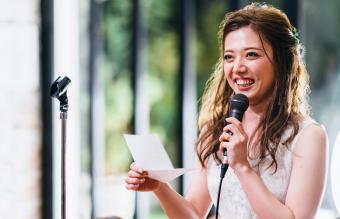
Understanding rehearsal dinner etiquette can help couples avoid unintentional insults at this casual wedding event. While poor manners may not be too critical at the rehearsal, an awkward event can be a poor precedent for the wedding festivities to follow.
About the Rehearsal Dinner
The rehearsal dinner is not a required event, but it does give the couple's immediate families and members of the bridal party the opportunity to socialize before the wedding. Traditionally, the rehearsal dinner is the responsibility of the groom and his parents, though many couples opt to plan this event themselves or may split responsibilities with their parents.
The purpose of the wedding rehearsal is to practice the events for the wedding processional and go over any last minute details that may need clarification before the big day. The wedding rehearsal dinner, then, is a relaxing meal either before or after that practice. The dinner is also a perfect time for the couple and their families to express appreciation for everyone's hard work planning the wedding, and it is a chance for the two families to get better acquainted before the ceremony. While the rehearsal dinner is usually less formal than the wedding itself, there are certain etiquette guidelines that should be followed.
Rehearsal Dinner Etiquette Tips
Timing
In general, the rehearsal dinner immediately follows the wedding rehearsal, typically the day before the big event. If all the wedding party members are available, however, it may be more convenient to hold the rehearsal a day or two sooner, though it should not be too early or last minute details could change. If a couple is not able to rehearse the ceremony until late in the evening, the dinner may be held before the practice. Above all, a couple should be courteous about scheduling the rehearsal dinner so it does not interfere with work schedules or travel plans any more than necessary. The dinner should also conclude early enough in the evening to ensure that everyone gets a good night's rest before tomorrow's celebration.
Guest List
The guest list is one of the most fiercely debated aspects of rehearsal dinner etiquette. The shortest possible guest list would include only those people who are required to attend the rehearsal, such as groomsmen and bridesmaids. As a matter of courtesy, the wedding officiant is invited to the dinner, though they may choose not to attend if they are not personally close to the couple.
If the rehearsal dinner is going to be a larger party, bridal party members' significant others may be invited along with close family members and friends who have contributed significantly to the wedding preparation. Some rehearsal dinner guest lists also include out-of-town wedding guests who have already arrived, particularly if they do not often have a chance to visit. Under no circumstances should anyone be invited to the rehearsal dinner who is not invited to the wedding itself; this is not an opportunity to include guests who did not make the wedding guest list.
Children at weddings is a trickier etiquette matter. If the rehearsal party is adults-only, any children in the wedding party do not have to be included, though they should be profusely thanked for attending the rehearsal and an offer to purchase a more appropriate dinner for the children and their parents is a nice gesture. If the children can be included in the rehearsal dinner, their parents should always be invited even if other bridal party members' spouses and significant others are not.
Invitations
Invitations should always be issued for the rehearsal dinner but the formality can vary. For a casual dinner, verbal invitations or e-vites are acceptable, though if the guest list is larger printed invitations may be a better option. As with invitations to any event, RSVPs are expected and should be handled appropriately.
Formality
The rehearsal dinner can be as formal or informal as desired. Many couples prefer a casual rehearsal dinner, particularly if their wedding reception will be more formal. The formality can also be dictated by the size of the guest list - it may be easier to arrange a large dinner if it is more formal, whereas a smaller group of close friends and family members may be perfectly at ease with a casual meal.
Menu

The rehearsal dinner menu is generally less elaborate than the wedding menu. Many couples opt for extremely casual fare, such as a barbeque, pizza, or sandwiches. For a more formal party, a catered dinner is appropriate.If alcohol is offered at the rehearsal dinner, it should be carefully moderated so no bridal party members or guests are inebriated or suffering the effects during the wedding. Toasts are a big event at the rehearsal dinner - often several family members will want to toast the happy couple, who may in turn respond with their own toasts of appreciation and thanks - and nonalcoholic juices and punches can substitute for wine or champagne.
While the rehearsal dinner menu can vary, it should not include a formal tiered cake. The rehearsal, after all, is not the wedding and should not resemble the more formal celebration to follow.
Gifts
While a couple should not expect gifts at their rehearsal dinner (though some guests may drop them off), many couples choose to give thoughtful gifts to their parents and attendants at the event. This is a wonderful way to thank them for their hard work. The couple should take care to include everyone, however; if gifts will not be given to each participant, it may be best to give them privately to avoid any disappointment.
Rehearsal dinner etiquette is not as strict as the etiquette for the wedding itself, but proper guidelines can help a couple enjoy this time with family and friends without worrying about breaches in propriety that could mar their wedding day.







